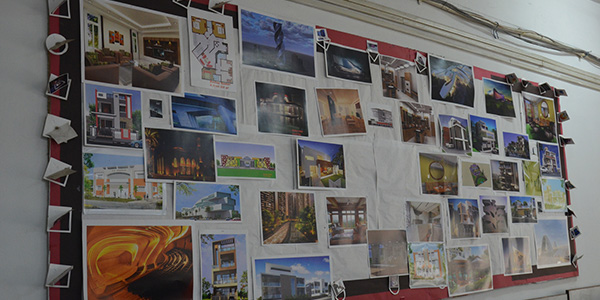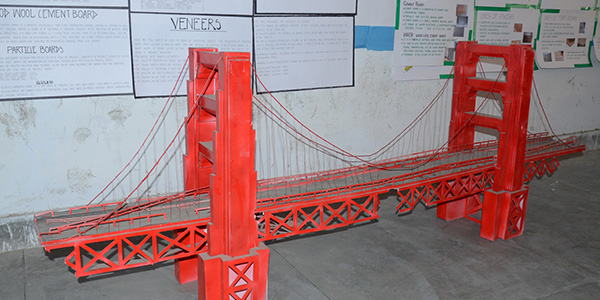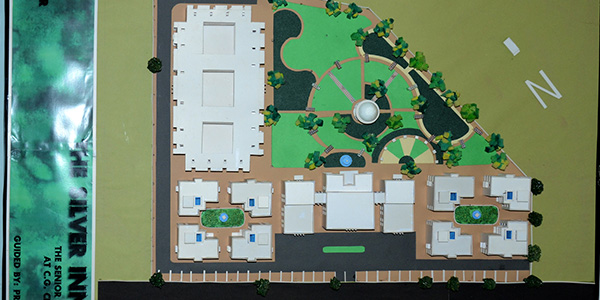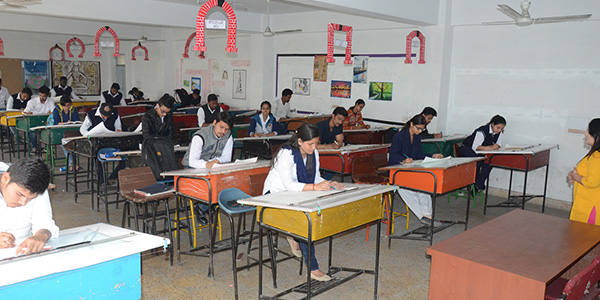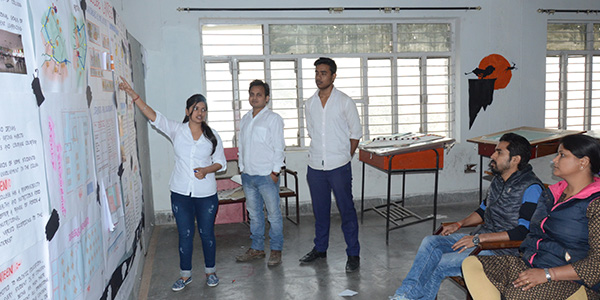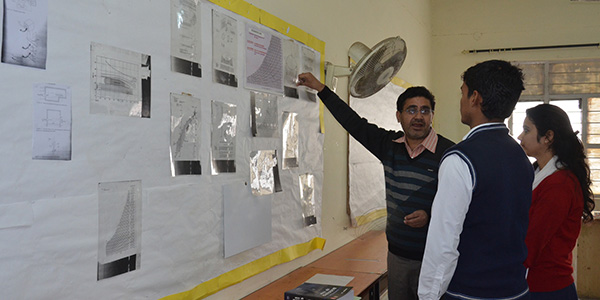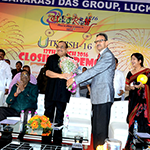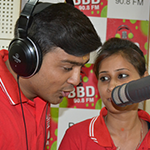TOP ARCHITECTURE, PLANNING, AND INTERIOR DESIGN COLLEGE IN LUCKNOW, UP
WHY MASTERS OF ARCHITECTURE
Masters of architecture is a professional postgraduate course designed to provide students with a high specification to the principles of architecture while also encouraging individuals to develop their own abilities and skills. The program’s goal is to look at design as a critique that goes beyond the constraints of production, such as in the current merger of low-end architecture and aesthetic.
Course Details
MASTERS OF ARCHITECTURE
| School Name: | School of Architecture and Planning |
| Course Length: | 2 Years/ 3 years (Part Time) |
| Session Start | August |
| Course Type: | Full Time / Part Time |
| Eligibility Criteria: | B. Arch or Equivalent CGPA/OGPA degree with minimum aggregate of 55% is required at graduate level. GATE Score is desirable but not essential. Relaxation in qualification and reservation is as per UGC and State Govt. norms. |
| Programme Fee: | Rs. 42,500/- Per Semester |
| Syllabus | Click here to Download (Regular) Click here to Download (Part Time) |
| Program Outcomes | |
|---|---|
| PO1 | Field Knowledge: Apply the knowledge of Architectural Design, Drawing , Art, Sculpting, Crafts, structural dynamics and statics fundamentals and Laws pertaining to building byelaws and services required in simple and complex building projects, Economical aspects and an architectural specialization to the solution of complex architectural problems. |
| PO2 | Problem Analysis: Conducting case and literature studies and analyze complex architectural problems reaching substantiated conclusions using principles of Architectural design, process of designing ( case and literature study, research and conceptualization of designs). |
| PO3 | Design / Development of Solutions: Establishing solutions for complex architectural problems and functional components or spatial arrangements that meet the specified needs and wants with appropriate consideration for the public amenities , services, health and safety and the cultural, societal and environmental considerations . |
| PO4 | Conduct Investigations of Complex problems: Use of research based knowledge and research methods including methodology, analysis and interpretation of data, and synthesis of the information to provide valid conclusions. |
| PO5 | Modern Tool Usage: Application of appropriate techniques, resources and modern architectural tools including BIM and CADD oriented modeling to complex architectural, structural and construction activities with an understanding of its advantages and disadvantages . |
| PO6 | The Architect, Planner and Society: Application of contextual knowledge to assess societal, health, safety, legal and cultural issues and the consequent drafting of proposals relevant to the professional practice. |
| PO7 | Environment and Sustainability: Understanding the impact of the professional field solutions in societal and environmental context and demonstrate the need for sustainable development and applying the same thereof. |
| PO8 | Ethics: Apply ethical principles and commit to professional ethics and responsibilities and norms of the professional practice, as prescribed and regulated by regulatory bodies. |
| PO9 | Individual and Team Work: To effectively function as an professional individual and as a member or team leader in diverse situations and in multidisciplinary settings. |
| PO10 | Communication: To communicate effectively with the professional community and stake holders and with society at large. Be able to comprehend and write effective reports documentation. |
| PO11 | Project management and finance: To demonstrate knowledge and understanding of profession, and management principles and apply these to practice to one’s own work, as a member and leader in a team and to manage projects in multidisciplinary environments. |
| PO12 | Life-long learning: To recognize the need for learning and develop an ability and skill to engage in a learning process in the broadest context of technological change in professional and technological realm. |
| Program Specific Outcomes | |
|---|---|
| PSO1 | The knowledge and ability to apply a design decision-making process through appropriate technical documentation in a manner that is client-centered, sustainable, aesthetic, cost effective, and socially responsible by employing appropriate building materials, building systems, and construction practices. |
| PSO2 | Incorporate a wide range of technical skills and professional architectural knowledge during schematic design to demonstrate a comprehensive application of life safety, urban, conservation, housing, landscape and sustainability issues in making sound design decisions across varying scales and levels of complexity. |


